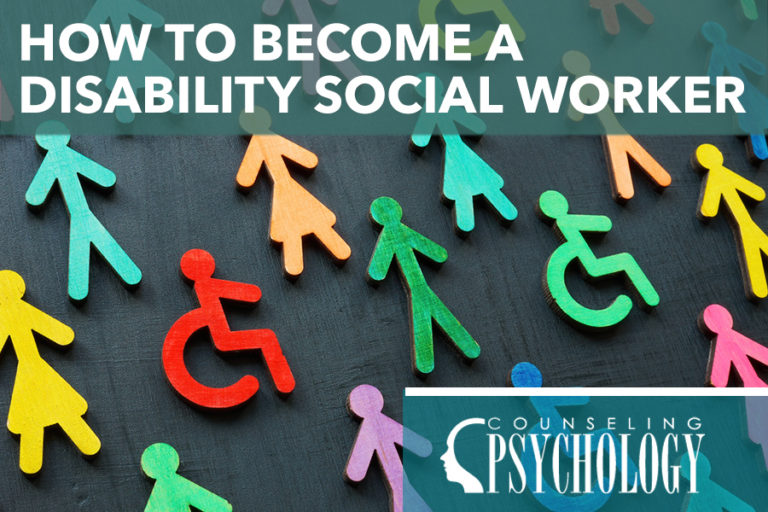How to Become a Disability Social Worker

In a world striving for inclusivity and equity, the role of disability social workers stands out as indispensable. These dedicated professionals serve as advocates, counselors, and facilitators, empowering individuals with disabilities to lead fulfilling lives. If you’re considering a career in this noble field, understanding the path to becoming a disability social worker is paramount. From education to licensure and job prospects, let’s explore the journey step by step.
Step 1: Complete a Social Work Degree
The first thing you’ll have to do before you can enter the disability social work field is to obtain a social work degree. While some social work positions don’t have a degree requirement, to be called a social worker, you will need to become licensed through an MSW program. Here are the various degrees you will find available for disability social workers:
- BSW (Bachelor of Social Work): Embarking on a career as a disability social worker often begins with earning a four-year Bachelor of Social Work (BSW) degree. This undergraduate program equips students with foundational knowledge in social work principles, ethics, and practices. Through coursework and field experiences, students develop essential skills in client assessment, intervention strategies, and advocacy.
- MSW (Master of Social Work): While a BSW provides a solid foundation, many aspiring disability social workers pursue advanced education through a Master of Social Work (MSW) program. An MSW degree offers specialized coursework in disability studies, policy analysis, and clinical practice. Students delve deeper into areas such as mental health interventions, rehabilitation services, and community inclusion initiatives. Master’s degrees take an additional two years following your bachelor’s degree.
- Doctorate Degree: For those passionate about research, teaching, or advanced clinical practice, pursuing a doctoral degree in social work can be a rewarding option. A Doctorate of Social Work (DSW) or a Ph.D. in Social Work allows professionals to contribute to the field through scholarly inquiry, policy development, and program evaluation. Though they aren’t accredited by the Council for Social Work Education (your licensing requirements will be fulfilled by your master’s degree), Doctoral programs offer opportunities to explore specialized areas within disability social work and make significant contributions to knowledge and practice.
Step 2: Become Licensed as a Disability Social Worker
Once you’ve acquired the necessary educational requirements, you’ll be eligible to take the licensure exam and become licensed as a disability social worker. Here’s what to expect:
Licensure Examination
In most jurisdictions, licensure is required to practice as a social worker, including in the field of disability services. After completing the requisite education, aspiring professionals must pass a licensure examination administered by the state regulatory board. The exam assesses competency in areas such as ethics, cultural competence, and professional practice standards.
State Requirements
Licensure requirements vary by state, so it’s essential to familiarize yourself with the regulations in your area. In addition to passing the licensure exam, candidates may need to fulfill supervised work experience hours and adhere to continuing education requirements to maintain licensure status.
Learn more about Getting a Social Work License in your state.
Step 3: Apply for a Disability Social Worker Job
What Careers Can I Pursue as a Disability Social Worker?
A degree in social work with an emphasis in disability services opens doors to diverse career opportunities across various settings. Disability social workers may find employment in:
- Hospitals and Healthcare Facilities: Providing counseling and support services to individuals and families coping with disabilities.
- Schools and Educational Institutions: Advocating for inclusive education practices and facilitating access to resources for students with disabilities.
- Community Organizations: Developing and implementing programs to enhance the social inclusion and participation of individuals with disabilities.
- Government Agencies: Working on policy development, advocacy initiatives, and service coordination efforts at local, state, or federal levels.
Where Can I Work as a Disability Social Worker?
The demand for disability social workers spans across urban, suburban, and rural communities. Whether in bustling metropolitan centers or underserved rural areas, professionals in this field are vital in promoting social justice and enhancing the quality of life for individuals with disabilities.
Step 4: Learn About Disability Social Worker Salaries
Salary expectations for disability social workers can vary based on factors such as education, experience, geographic location, and employer type. According to the U.S. Bureau of Labor Statistics, the median annual wage for social workers, including those specializing in disabilities, was $55,350 as of May 2022. However, salaries can range significantly, with opportunities for advancement and higher earning potential with advanced degrees and specialized certifications.
